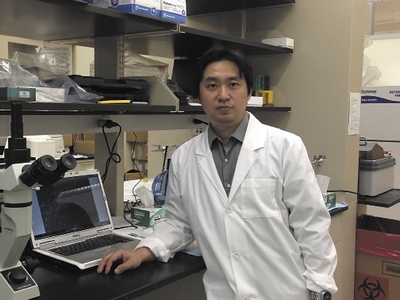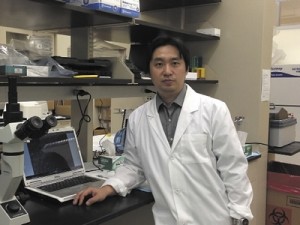Startup ImStem Raising Funds For Novel Stem-Cell MS Treatment

 Startup biotech company ImStem Biotechnology is looking to raise additional funding for their upcoming clinical trials after publishing promising research on a unique stem-cell treatment used on mice with multiple sclerosis. The company has already received previous funding from the state of Connecticut’s 10-year, $100 million investment in stem-cell research, as well as other investors.
Startup biotech company ImStem Biotechnology is looking to raise additional funding for their upcoming clinical trials after publishing promising research on a unique stem-cell treatment used on mice with multiple sclerosis. The company has already received previous funding from the state of Connecticut’s 10-year, $100 million investment in stem-cell research, as well as other investors.
ImStem discovered that the mesenchymal stem cells (MSCs) derived from human embryonic stem cells are more effective to treat MS in mice than MSCs derived from adult bone marrow, during their research in collaboration with the UConn Health Center scientists and Massachusetts’ Advanced Cell Technology. The scientists concluded that the use of adult bone marrow stem cells is highly variable and highly probably to fail.
The MSCs are a type of cell that can differentiate into other types of cells and according to the company’s findings are able to promote nerve-cell regeneration in multiple sclerosis. Since there is no cure for the disease, this may become a major breakthrough in the field.
“Current therapies don’t cure the disease. [They] only provide temporary relief and side effects. We hope stem-cell therapy can give patients new options with fewer side effects,” said Xiaofang Wang, ImStem’s cofounder and chief technology officer. “There are quite a few groups trying stem-cell [therapies] on MS. This is a tough disease to deal with.”
ImStem is waiting for approval to begin Phase 1 clinical trials and is simultaneously looking for new funding. Wang said it is a big challenge for a new company to raise investment for the pre-clinical trials mandated by the U.S. Food and Drug Administration. “It’s hard for a startup biotech company to raise funding before Phase 1. There is a big funding gap between grant support and venture capital.”
“If everything goes as planned, in five years we should have finished Phase II clinical trials on multiple sclerosis and started Phase I trials on other diseases. The company can grow to around 30 to 50 people,” he added. ImStem is also considering new projects regarding diseases like inflammatory bowel disease and spinal cord injuries. However, Wang said that without the state investment, they would not exist.
ImStem became the second private company to secure funding under the state’s stem-cell program, following Chondrogenics, a UConn spinoff that is developing a stem cell-based treatment for cartilage repair. The startup is also a member of the UConn technology incubator and received $1.1 million Connecticut Stem Cell Research Program grant last year, from the 10-year $100 million program founded in 2005 by the former Governor M. Jodi Rell.
[adrotate group=”4″]
Connecticut Innovations, the state’s quasi-public venture capital arm, also made a $150,000 pre-seed investment into the company. Stem cells are becoming increasingly popular among some researchers, given their ability to develop into mature cells with differing functions and division without limits, which makes them a valuable tool to repair damaged tissue.
The National Multiple Sclerosis Society invested $29 million nationwide in research last year to help develop MS cures and treatments. $4.5 million of those grants were ermarked for 15 UConn projects. Researcher Joel Pachter from the UConn Health Center was granted two of the awards, and has also been working in collaboration with ImStem on the MSC research.






